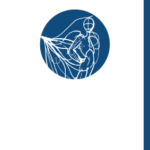Abstract
Numerous scientific evidences show that people with a mental disorder suffer not only from the disorder itself, but
also, and perhaps above all, for the social and relational consequences that the disorder produces and which manifest
themselves in the form of stigma. The improvement of mental health, with a view to Recovery, is in fact based on the
possibility of taking advantage of socio-professional contexts in which users and operators have the opportunity to
live meaningful relationships, and this can translate into a form of existence as much as possible rewarding and satisfying. The main purpose of the work was to investigate how much the “Innovative Technologies for Social Inclusion” project allowed to combine the promotion of the territory and the social inclusion of people with severe mental health problems. It was possible to analyze this element through the FPS Scale (personal and social functioning) and two evaluation grids administered. The New Communication and Information Technologies (ICT) have made it possible to rethink a new relationship between Digital Technology and the world of Disability; in fact they have allowed the patients of the Psychosocial Ria Community of Campolieto a more satisfactory quality of life and a better enhancement of the territory. These results offer promising preliminary evidence that the use of ICT provides an effective tool for promoting the social inclusion of discriminated groups of the population such as people with severe mental disorders.

This work is licensed under a Creative Commons Attribution-NonCommercial-NoDerivatives 4.0 International License.
Copyright (c) 2022 Journal of Advanced Health Care





